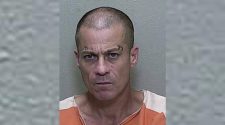Don Horsley
A program to deploy mental health clinicians on emergency calls related to mental distress received approval from the San Mateo County Board of Supervisors Tuesday, advancing a monthslong effort to reimagine local policing.
“It’s not the end all be all. It is a growing and adaptive program,” said Supervisor Don Horsley, a former county sheriff who championed the program.
The two-year pilot program will embed a full-time licensed mental health clinician within the San Mateo, Daly City, South San Francisco and Redwood City police departments — one clinician will be assigned to each city — to respond along with police officers to mental health emergencies.
One year of the program will cumulatively cost a maximum of $876,776 and roughly $1.5 million, according to a San Mateo Police Department press release. While the county will cover 53% of the program, offset with Measure K funds, the cities will fund the remaining 43%.
Clinicians, as county employees through the Behavioral Health and Recovery Services, will have access to records that will better advise the clinicians when determining treatment but will work 40 hour weeks based on each city’s needs.
Dr. Scott Gilman, BHRS director, noted that clinicians will also travel independently, allowing officers to respond to other calls when the initial scene has been secured. Long term, officials aim to develop a nonlaw enforcement response which would dispatch clinicians to scenes when considered safe to do so but until then officers will arrive at the scene first.
“The dispatchers play a key role here,” said Gilman, adding that dispatchers will receive the same training officers and clinicians receive.
Modeled after programs in other jurisdictions, Supervisor Warren Slocum said he feels the county’s model is superior to others including the Cahoots program developed in Eugene, Oregon, over 30 years ago, saying “we’ll see with the test of time.”
Gilman noted that demand for law enforcement departments to respond to calls relating to mental health disorders has increased across the county. And currently, 50% of those in county jail experience some form of mental illness.
Calling the figure staggering, Supervisor Dave Pine shared his enthusiasm for the program and its potential to save departments money by reducing the time officers spend deployed on calls. Similarly, supervisors Slocum and Carol Groom shared high praise for the pilot with Slocum noting, “this is a long time coming.”
Ongoing reviews will be conducted on the program, said Gilman, ensuring community stakeholders like the African American Health Equity Initiative, the Mental Health and Substance Abuse Recovery Commission and the National Alliance on Mental Illness weigh in and build paths for further dialogue. Clinicians and officers will also meet regularly to discuss ways to better interactions.
Horsley, reflecting on his time as county sheriff, said the mental health crisis he saw then has become more prevalent today, particularly now as communities grapple with COVID-19. Sharing appreciation for county and department staff who developed the “forward moving program,” he noted the growing civil unrest related to policing that led to the change.
“They are really responding to not only equity but also the call to the times in terms of the Black Lives Matter [movement].”
(650) 344-5200 ext. 106















